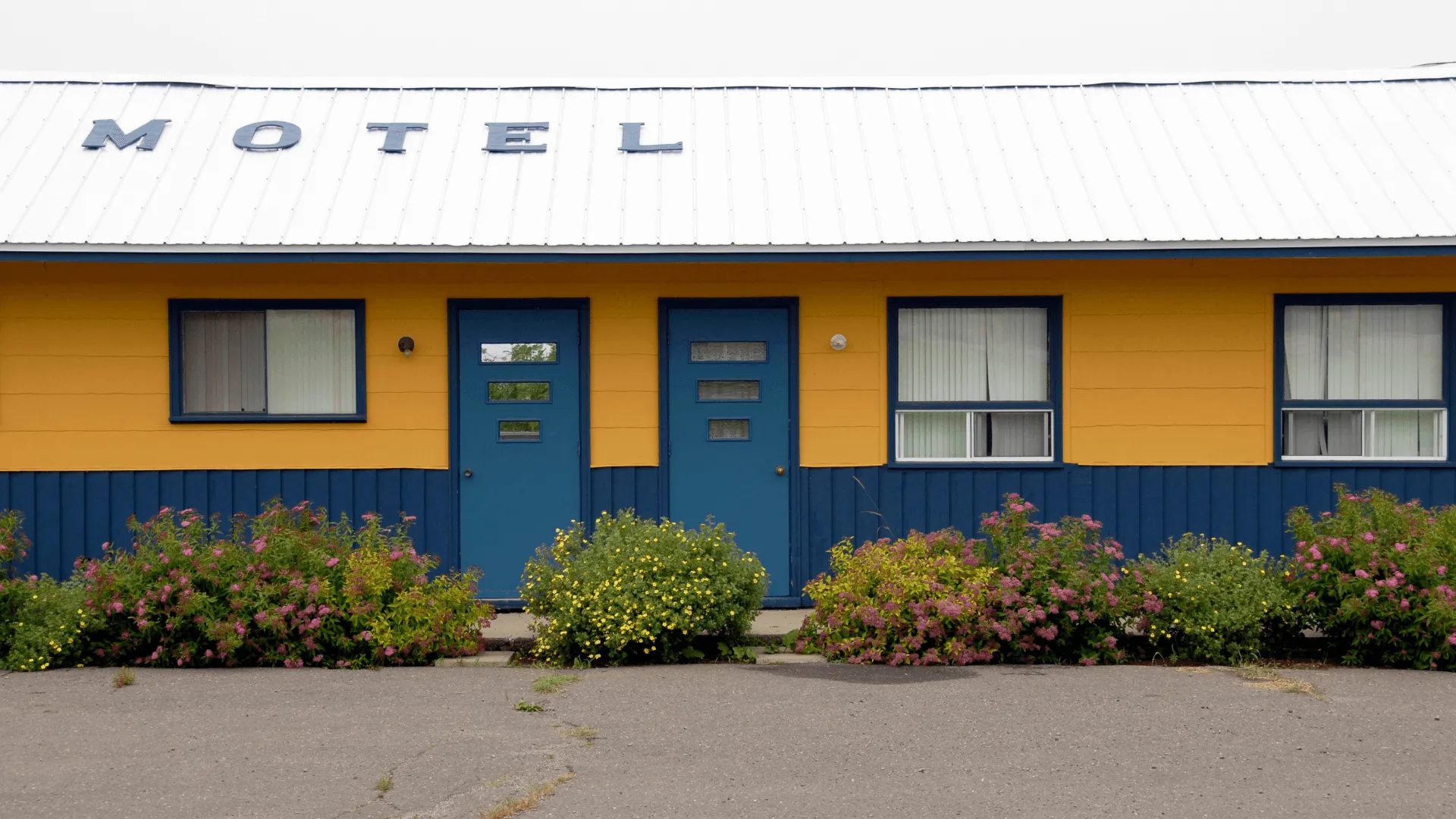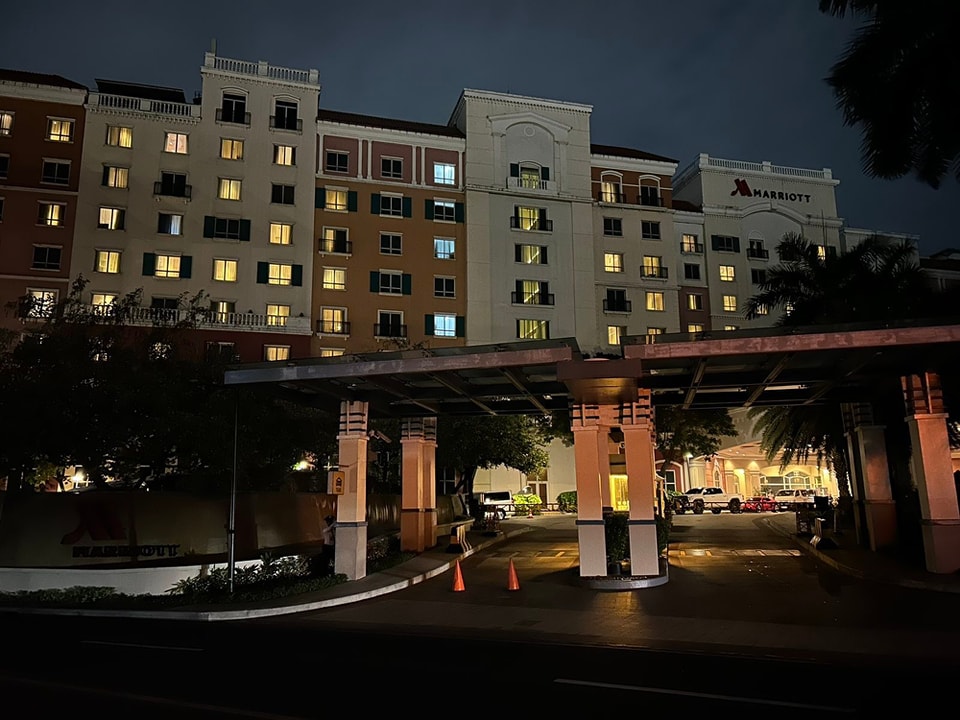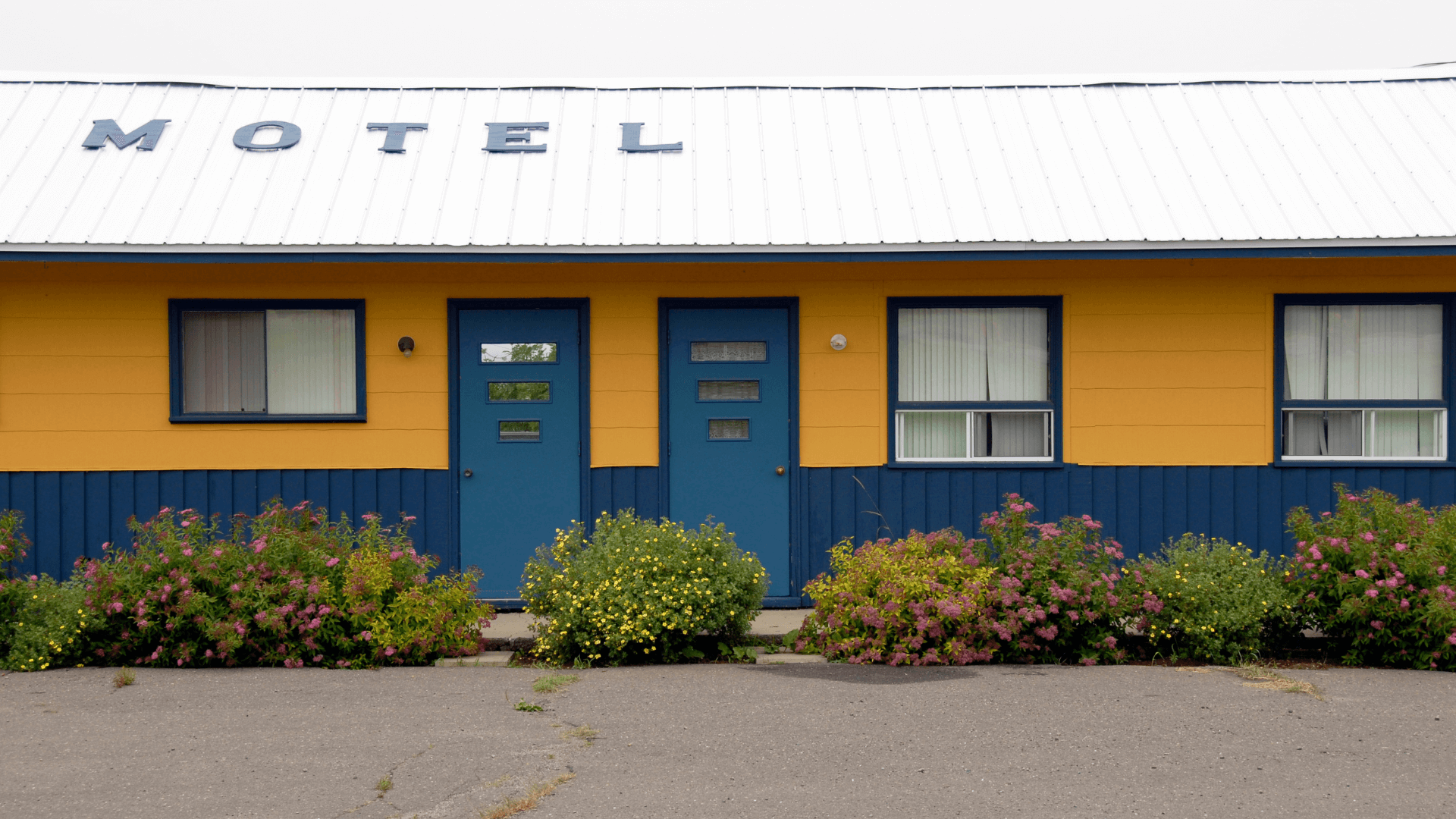
Motel vs. Hotel: Where to Stay?
August 27, 2024

When planning a trip, one of the first decisions you'll face is choosing the right accommodation type. Whether on a road trip, business travel, or a leisurely vacation, understanding the differences between the types of accommodations can help you make an informed decision.
When deciding between a motel vs. a hotel, it's crucial to understand how this choice can significantly impact your comfort, convenience, and budget during your stay. Knowing what each type of lodging offers in terms of size, amenities, price, location, and accessibility is important in selecting the right one for your needs.

Comparing Motel vs. Hotel
Size and Layout

Motels are typically smaller, often single-story or low-rise buildings. They are designed with convenience in mind, featuring a simple layout where guests can park directly in front of their rooms. In contrast, hotels are generally larger, multi-story buildings with numerous rooms spread across different floors. They often feature a more elaborate layout, including a lobby, elevators, and common areas.
Amenities
Motels’ amenities are usually minimal and functional, catering to travelers who require necessities for a short stay. Standard amenities include free parking, Wi-Fi, and a small continental breakfast. Hotels, on the other hand, offer a wider range of amenities designed to enhance the guest experience. These include on-site restaurants, fitness centers, swimming pools, conference rooms, and room service. The amenities in hotels vary greatly depending on the hotel's star rating and target clientele.
Price
Motels generally offer more affordable pricing, making them a budget-friendly option for travelers looking for no-frills accommodation. This lower price point reflects the basic amenities and services provided. Hotels, however, can vary widely in price depending on their location, star rating, and the range of services they offer. While you can find budget hotels, many cater to mid-range and luxury markets, with prices increasing accordingly. The higher cost often correlates with better amenities, more comfortable accommodations, and additional services.
Duration of Stay
Motels are typically geared towards short-term stays, often catering to moving guests who need a place to rest for a night or two. This makes them a popular choice for road trips or brief stopovers. Hotels, in contrast, are suitable for both short and long stays. They often accommodate business travelers, tourists, and long-term guests.
Location
Motels are commonly located near highways, on the outskirts of towns, or along major travel routes. This strategic placement caters to travelers needing quick and convenient accommodation access without detouring far from their route. Hotels, however, are typically found in more central locations, such as city centers, tourist areas, and near airports. This makes hotels a convenient option for those who want to be close to tourist attractions, business districts, or event venues. Sheraton Manila is one hotel that is conveniently located in the city and has easy airport access via Runway Manila, which makes it perfect for all types of travelers.
Accessibility
Accessibility is another critical difference between motels and hotels. Motels are designed with easy access in mind, allowing guests to park directly outside their rooms, making luggage unloading and settling hassle-free. This is particularly advantageous for travelers with mobility issues or those who prefer convenience. Hotels offer different accessibility, often featuring elevators, concierge services, and valet parking. These services enhance the guest experience but might involve navigating larger, more complex buildings.
Booking
Booking a motel is typically a simple process, often allowing for last-minute walk-ins without needing advanced reservations. This flexibility is convenient for travelers who may not have a fixed itinerary. Hotels usually require reservations, especially in high-demand areas or peak travel seasons. Advanced booking ensures room availability and allows guests to choose from various room types and additional services.
Key Takeaways
When choosing between a motel and a hotel, your decision should be guided by your specific needs and the nature of your trip. Motels are an excellent choice for budget-conscious travelers or those looking for a quick and convenient stopover. Hotels, with their broader range of amenities and prime locations, are better suited for those seeking a more comfortable and service-oriented stay, whether for business or leisure. By understanding the differences between these two types of accommodations, you can ensure that you select the right option for your next trip.